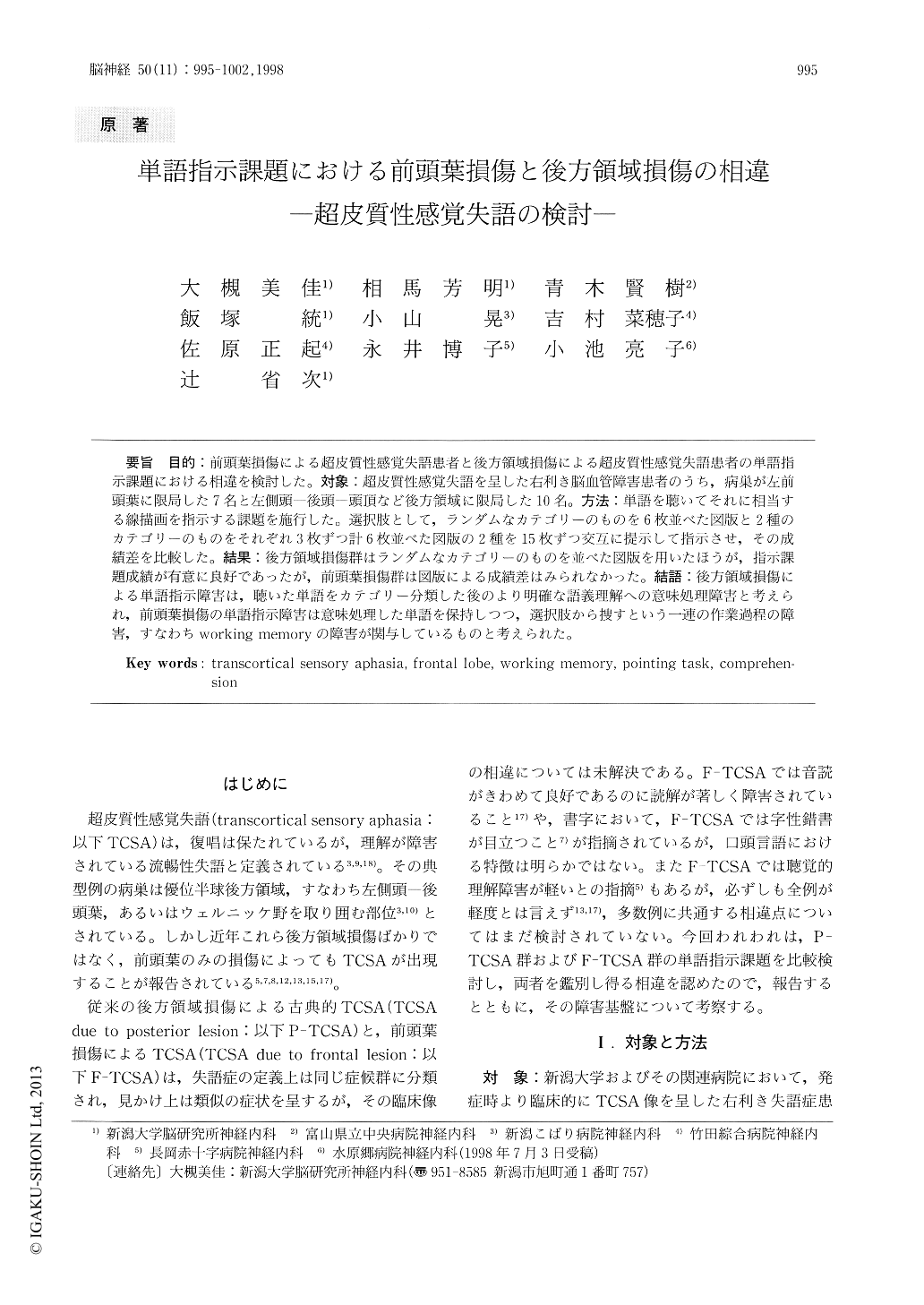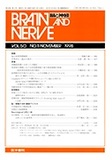Japanese
English
- 有料閲覧
- Abstract 文献概要
- 1ページ目 Look Inside
目的:前頭葉損傷による超皮質性感党失語患者と後方領域損傷による超皮質性感覚失語患者の単語指示課題における相違を検討した。対象:超皮質性感覚失語を呈した右利き脳血管障害患者のうち,病巣が左前頭葉に限局した7名と左側頭—後頭—頭頂など後方領域に限局した10名。方法:単語を聴いてそれに相当する線描画を指示する課題を施行した。選択肢として,ランダムなカテゴリーのものを6枚並べた図版と2種のカテゴリーのものをそれぞれ3枚ずつ計6枚並べた図版の2種を15枚ずつ交互に提示して指示させ,その成績差を比較した。結果:後方領域損傷群はランダムなカテゴリーのものを並べた図版を用いたほうが,指示課題成績が有意に良好であったが,前頭葉損傷群は図版による成績差はみられなかった。結語:後方領域損傷による単語指示障害は,聴いた単語をカテゴリー分類した後のより明確な語義理解への意味処理障害と考えられ,前頭葉損傷の単語指示障害は意味処理した単語を保持しつつ,選択肢から捜すという一連の作業過程の障害,すなわちworking memoryの障害が関与しているものと考えられた。
We assessed the difference between transcortical sensory aphasia (TCSA) following the left frontal lesions (F-TCSA) and TCSA following the left posterior lesions (P-TCSA). All the patients were right-handed and the 7 patients had the lesions in the only frontal lobe and the 10 patients had the lesions only in the left temporo-parieto-occipital regions. We administered pointing tasks, using 90 line drawings representing single nouns.

Copyright © 1998, Igaku-Shoin Ltd. All rights reserved.


